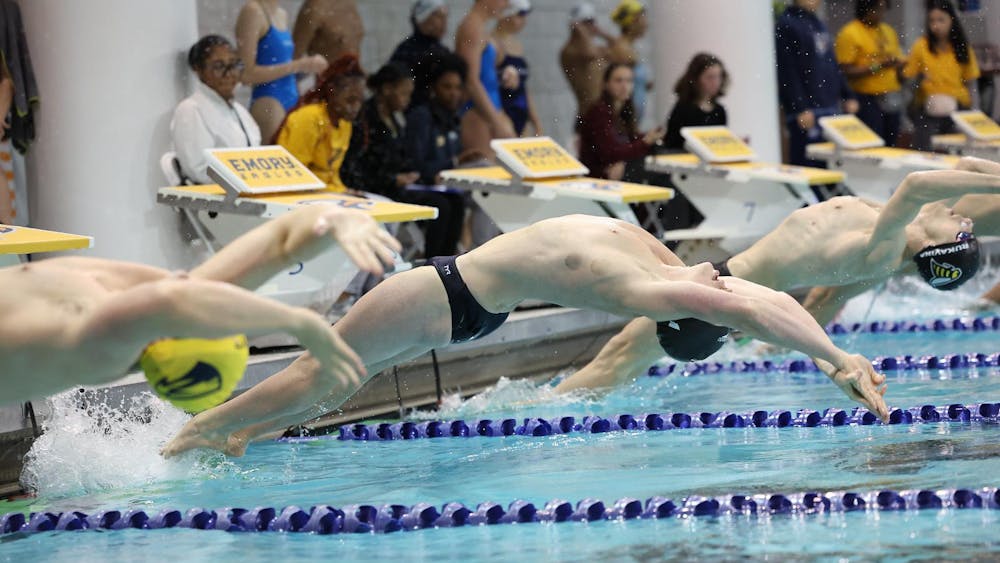In the last five years, the National Women’s Soccer League (NWSL) has exponentially grown in all directions: revenue, coverage and number of franchises. After the United States National Women’s Soccer Team overtook Brazil to win Olympic gold in Paris, the team’s growth is especially likely to continue.
The NWSL made significant progress in 2023, with viewership up 48% from 2022. This surge was concurrent with a 71% rise in U.S. viewership of the 2023 Women’s World Cup final compared to 2019. This came after major channels began to prioritize supporting women’s soccer in the U.S. Most notably, CBS, Amazon and Scripps agreed to a four-year deal in 2023 worth $240 million. This streaming access and primetime coverage guarantees better accessibility for NWSL fans to watch their favorite athletes.
It is widely demonstrated that women’s sports captivate more eyes when given a chance through primetime matches and advertisements. For example, ABC broadcasted the WNBA All-Star game in 2023 for the first time and smashed the event’s viewership records. For the NWSL, the new television deal has remarkable implications for its long-term success.
As interest in women’s soccer skyrockets, the NWSL is trying to meet the demand with multiple expansion teams. In five years, four teams have popped up out West, including the Utah Royals and Bay Area FC starting this year, with teams in Boston and an undecided city to join them in 2026. Since their formation in 2019, Angel City FC and San Diego Wave FC have seen their valuations catapult from $2 million each to $250 million and $120 million, respectively.
At the core of this growth remains the league’s biggest strength: competitiveness. In stark contrast to the NWSL, European women’s soccer leagues have only one or two powerhouse teams, leading to few competitive games on their respective league calendars. The NWSL has been extremely forward-thinking while expanding, creating high thresholds for new teams to meet, such as rapidly increasing expansion fees. This ensures teams can compete with major franchises by offering competitive contracts, comfortable travel accommodations and parental leave benefits.
This protects the NWSL’s competitiveness and separates it from other leagues globally. Multiple NWSL general managers pointed at talent spread across the 14 teams with one saying, “In this league, anyone can win on any single day.”
There’s no denying the talent level within the NWSL, highlighted by brilliant performances during the 2024 Paris Olympics from attackers Trinity Rodman, Sophia Smith and Mallory Swanson. “Triple Espresso,” as they like to be called, also displayed their goofiness off the pitch through social media and interviews. So, if people weren’t convinced to watch NWSL matches for the talent, Triple Espresso and many other large personalities in the league could easily win them over.
While there hasn’t been a confirmed proposed bid for an NWSL expansion into Atlanta for 2026, it appears to be only a matter of time. Atlanta United FC owner Arthur M. Blank Sports & Entertainment expressed their interest through a written statement, hinting that they may want to add an NWSL team to their “portfolio.” Additionally, when ESPN asked NWSL general managers which city the league should expand to next, four out of the 14 said Atlanta. This was the most popular answer, with Miami coming in second with three votes.
An Atlanta-based team isn’t a far-fetched idea. The city has historically embraced soccer. In 2017, the United boasted an average game attendance of 46,482, more than double the average MLS game attendance of 21,327. A 2018 MLS Cup win in only the program’s second year, followed by a 2019 U.S. Open Cup and a 2019 Campeones Cup, certainly assisted the team’s popularity. Despite success stagnating on the field in recent years, United’s fan base remains ever-loyal to its team.
Atlanta is also the future home of the U.S. Soccer Federation headquarters, with facility construction expected to be completed in 2026. This $200 million investment will boast 200,000 square feet of training areas and more than a dozen outdoor fields, a significant nod to Atlanta’s support of soccer. With Atlanta providing top-tier training resources and a newly constructed stadium — not to mention access to a major airport — the city should be next in line for an NWSL team.






